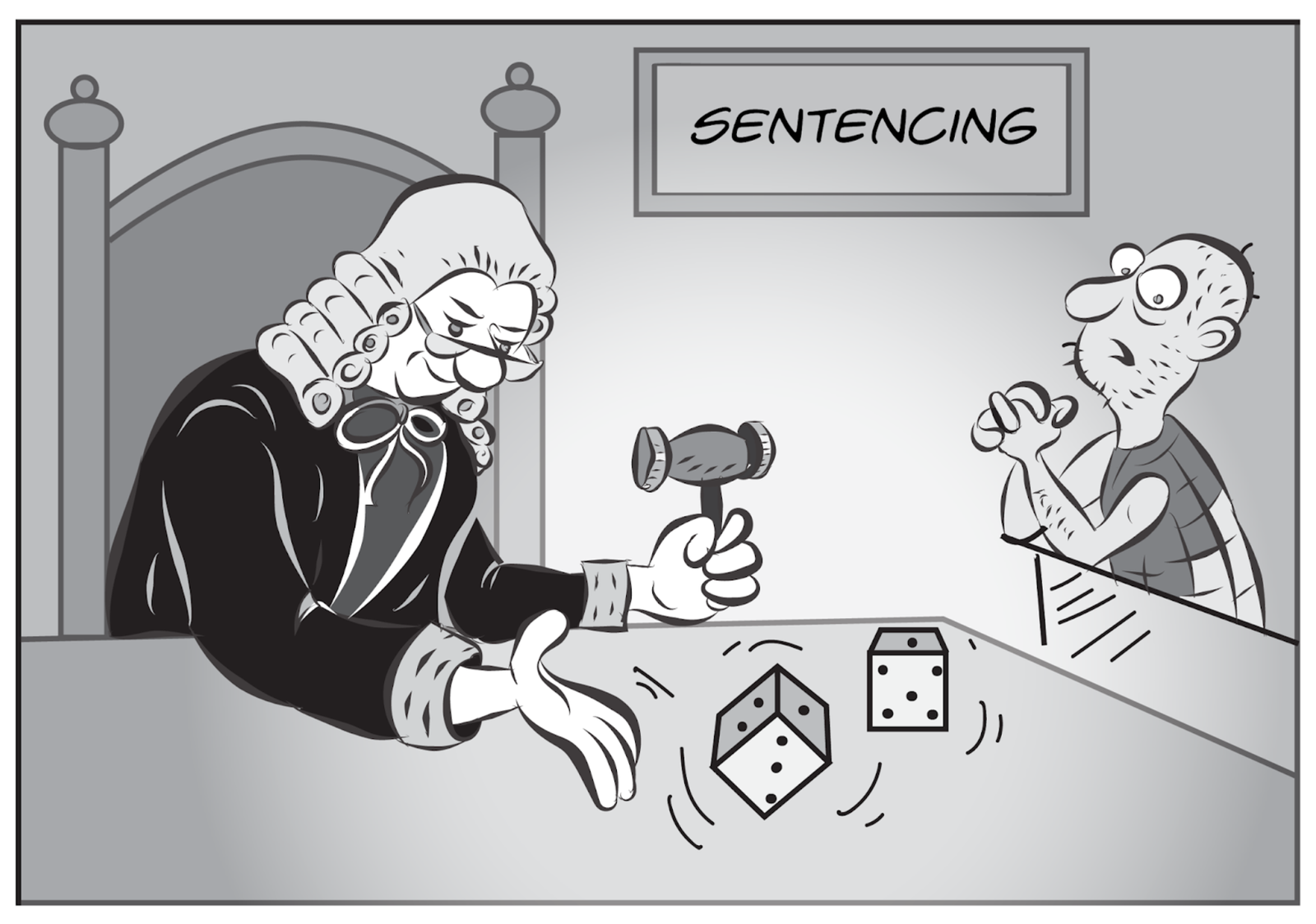Judges, if they were allowed to play with dice, could be influenced by those dice when deciding on prison terms. I will explain how, but first I want to ask you a question:
Do you think there are more or fewer than 15 countries in Africa? Think about it for a moment. More than 15 countries in Africa or fewer?
Having considered that, now take a guess at how many countries there are.
There are actually five times eleven countries in Africa (if you include Western Sahara, which actually is not yet recognised by the UN). I have not written the number properly because I didn’t want you to see it by mistake before making your guess. I’m hoping that your maths will get you there.
I expect most people reading this will have guessed a number considerably under 55. Maybe 30 or 40. They were probably influenced by my asking if there were more or fewer than 15.
When having to make an estimate of any sort of quantity, people have a ballpark range within which they would expect the answer to be. When I asked about the number 15, you will probably have decided that it was too low. However, when you were subsequently asked to make an estimate, you probably went up from 15 until you reached the bottom of the ballpark range. If I had asked about the number 100 you would have come down from 100 until you reached the top of the ballpark range.
Your estimate of the number of countries in Africa, then, was almost certainly influenced by the number I proposed, even though it was clearly wrong. This initial figure, which so influenced you, is known as an anchor. Anchors are incredibly pervasive and their influence can be seen everywhere that figures are invented, guessed or debated.
Englich, Mussweiler and Strack showed that even experienced judges could be influenced in this way when deciding on prison sentences for criminals. The judges rolled dice first and considered whether the number rolled was too high or too low for the number of months a prisoner should serve. Then they decided how many months to actually sentence someone to. Those who rolled a three recommended an average of about five months; those who rolled a nine recommended about 8 months!
Find out more about how the mind plays tricks on you and how your memory works by reading my books, Bias Beware and Memory Matters.
